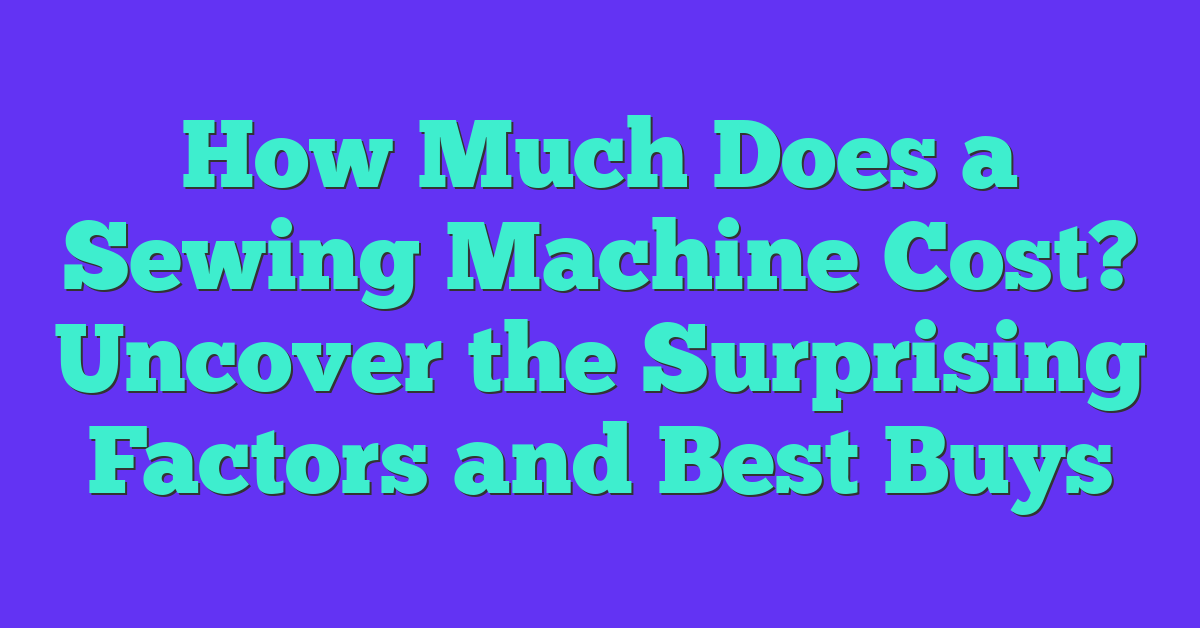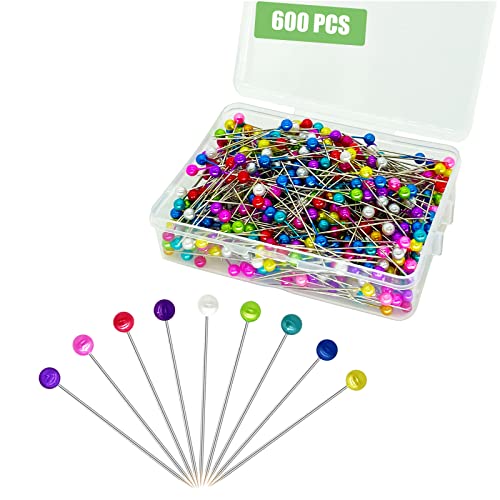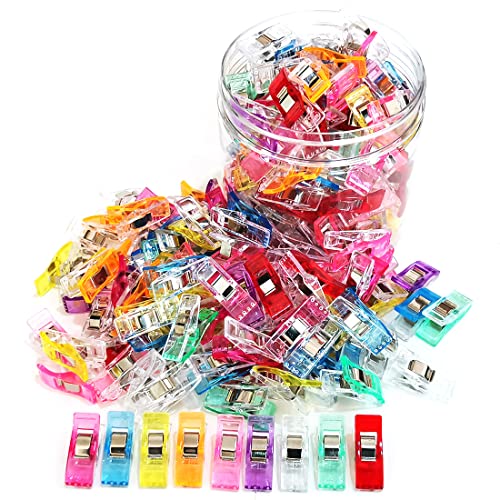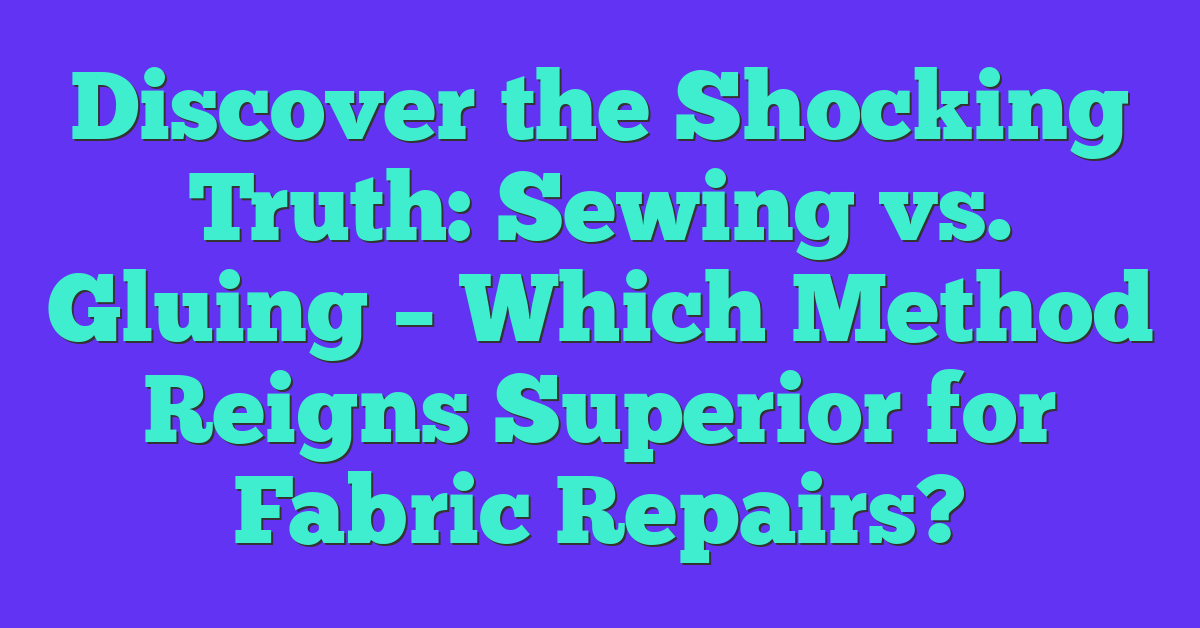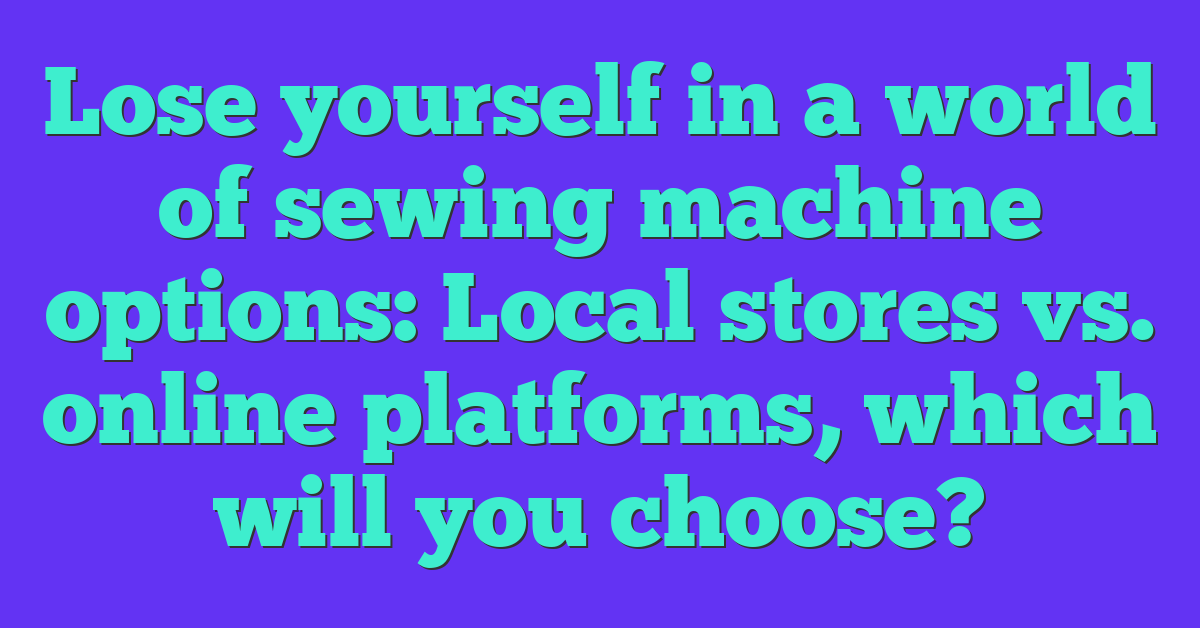So, you’ve decided to dive into the world of sewing. Whether you’re a beginner or looking to upgrade, one of the first questions you’ll face is, “How much does a sewing machine cost?” With so many options out there, it can feel overwhelming to figure out what fits your needs and budget.
From basic models perfect for simple projects to advanced machines with all the bells and whistles, the price range can vary widely. But don’t worry, we’ve got you covered. In this guide, we’ll break down the factors that influence the cost of a sewing machine and help you find the best one for your creative journey.
Understanding the Cost of Sewing Machines
Sewing machines come with various features that significantly impact their cost. Understanding these factors helps you make an informed decision.
Factors Influencing Prices
Several elements determine the cost of a sewing machine.
- Features: Machines with advanced features like automatic needle threading, multiple stitches, or embroidery functions generally cost more.
- Brand: Well-known brands (Singer, Brother) often have higher prices due to reliability and reputation.
- Build Quality: Metal components and durable materials increase longevity and price.
- Functionality: Specialized machines for quilting or embroidery come at a premium.
- Technology: Digital interfaces and computerized systems add to the cost.
Price Range by Type
The cost of sewing machines varies widely depending on the type.
| Type | Price Range ($) |
|---|---|
| Basic Mechanical | 70 – 200 |
| Intermediate Electronic | 300 – 600 |
| Advanced Computerized | 700 – 3,000+ |
| Serger Overlock | 200 – 1,000+ |
Basic Mechanical: Ideal for beginners, these machines handle simple tasks and are budget-friendly.
Intermediate Electronic: Suitable for hobbyists, they offer more stitches and better accuracy.
Advanced Computerized: These high-end machines, favored by professionals, provide extensive features and high precision.
Serger Overlock: Essential for professional finishes, these machines perform complex stitching tasks.
Types of Sewing Machines
To better understand how much sewing machines cost, knowing the different types available helps you make an informed decision.
Mechanical Sewing Machines
Mechanical sewing machines are simple and durable. They use manual controls like knobs and dials for adjustments. Often, these machines are entry-level models, ideal for beginners or basic sewing tasks. Brands like Singer and Janome offer reliable options in this category.
Electronic Sewing Machines
Electronic sewing machines provide more features than mechanical ones. They incorporate electric motors for smoother operation and enhanced precision. Commonly, these machines offer various stitch patterns and may include an LCD screen for easy navigation. Brother and Juki are popular brands in this segment.
Computerized Sewing Machines
Computerized sewing machines are advanced, offering a wide range of stitches and embroidery functions. Controlled by software, these machines can save patterns and connect to the internet for updates. They usually feature a large touchscreen interface and automated settings. Top brands like Bernina and Pfaff offer models geared towards experienced sewers and professionals.
Understanding these categories will guide you in selecting the most suitable machine for your needs and budget.
Features That Impact Sewing Machine Costs
Diverse features contribute to sewing machine costs. Understanding these features helps you make an informed choice based on your specific needs and budget.
Built-in Stitches and Buttonhole Styles
The number and variety of built-in stitches and buttonhole styles impact a sewing machine’s price significantly. Basic machines might have 10-15 stitches, covering essentials like straight, zigzag, and buttonhole. In contrast, high-end models can offer over 200 stitch options, including decorative, heirloom, and quilting stitches.
Machines with multiple buttonhole styles, such as the one-step buttonhole, also tend to cost more than those with fewer options. Brands like Bernina and Pfaff, known for their versatility in stitch designs, often feature higher price points.
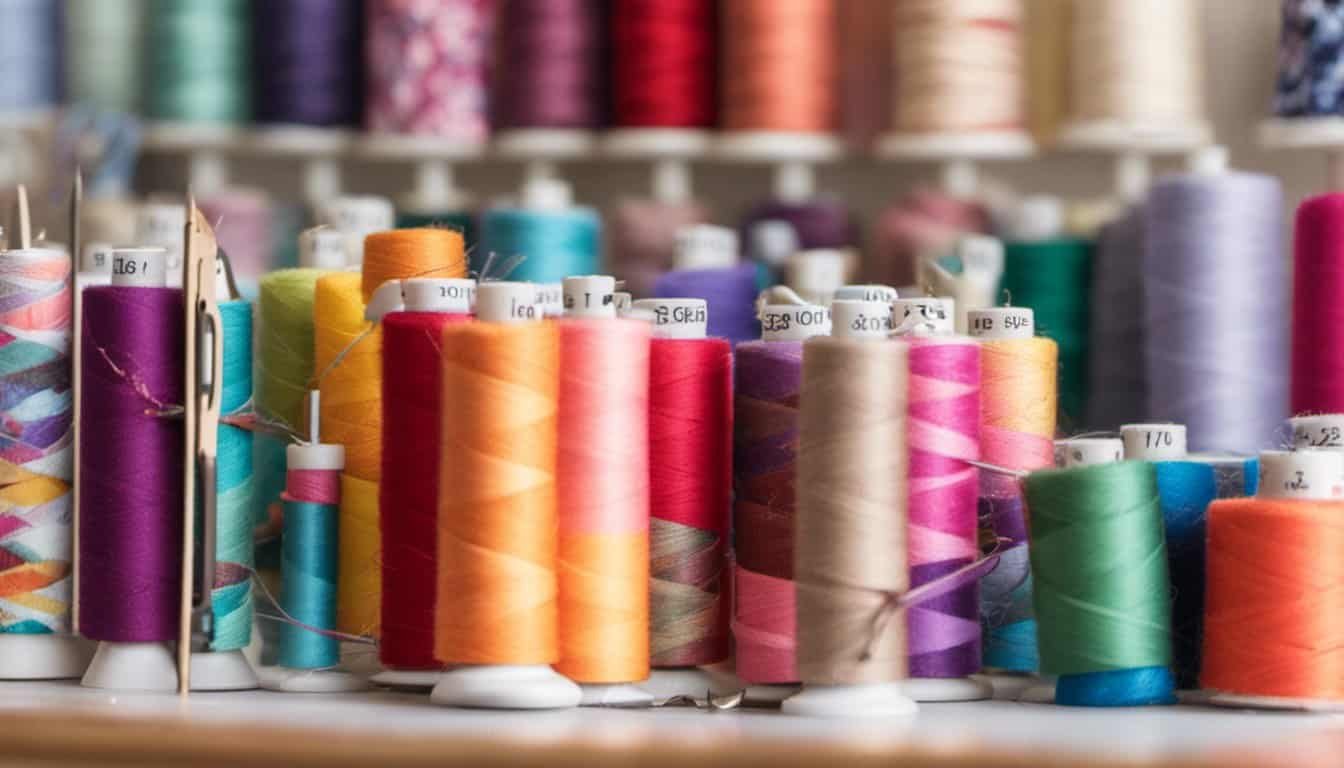
Automated Features
Automated features enhance convenience and efficiency but add to the cost of a sewing machine. Common automated features include needle threaders, thread cutters, and fabric sensors. Needle threaders eliminate the hassle of manual threading, which can be particularly useful for users with vision issues. Thread cutters, an automatic addition, save time and increase workflow efficiency.
Fabric sensors adjust settings based on fabric thickness, ensuring optimal stitch quality. Brands like Brother and Janome often incorporate such features in their mid-range and high-end models, reflecting in increased costs.
Understanding these impactful features provides clarity on how varied functionalities can affect sewing machine pricing.
Choosing the Right Sewing Machine for Your Budget
Selecting the perfect sewing machine doesn’t have to break the bank. By evaluating your needs and comparing available features and prices, you can find a machine that fits your budget and skill level.
Assessing Your Sewing Needs
Determine your skill level and project types before choosing a sewing machine. Beginners might need a basic mechanical model with essential functions. For simple alterations and DIY projects, a machine with a few built-in stitches and basic buttonhole capabilities suffices. If you plan on more complex projects like quilting or embroidery, consider an intermediate electronic model. These machines offer more stitch options and additional features, enhancing your creativity.
« Top 15 Must-Have Tools for Sewing: Secrets to Effortless and Professional Results
The Ultimate Guide to Types of Sewing Needles: Unlock Perfect Stitches Every Time »
Advanced sewists, who often work with diverse fabrics and intricate patterns, benefit from a computerized sewing machine. These models include features like automated tension adjustment, extensive stitch libraries, and touch screen interfaces. Sergers, also known as overlock machines, are critical for those needing professional seam finishes and fabric edges.
Comparing Prices and Features
Comparing prices and available features helps in aligning the sewing machine with your budget. Entry-level mechanical machines can range from $70 to $200, suitable for basic tasks and beginners. Brands like Singer and Brother offer reliable options in this category.
For intermediate machines, prices typically range from $300 to $700. Janome and Pfaff provide models with a good balance of features and durability. They often include automated functions like needle threaders and fabric sensors, simplifying complex tasks.
High-end computerized machines start around $1,000 and can exceed $5,000. These machines, from brands like Bernina and Baby Lock, offer extensive stitch libraries, advanced embroidery capabilities, and user-friendly interfaces. Sergers usually cost between $250 and $1,500 depending on features and brand.
| Category | Price Range | Key Brands | Key Features |
|---|---|---|---|
| Basic Mechanical | $70 – $200 | Singer, Brother | Essential functions, limited built-in stitches |
| Intermediate Electronic | $300 – $700 | Janome, Pfaff | More stitch options, automated features |
| Advanced Computerized | $1,000 – $5,000+ | Bernina, Baby Lock | Extensive stitches, embroidery capabilities |
| Sergers | $250 – $1,500 | Juki, Baby Lock | Professional seam finishes, overlock functions |
By accurately assessing your needs and carefully comparing features and prices, you can find a sewing machine that fits both your budget and creativity goals.
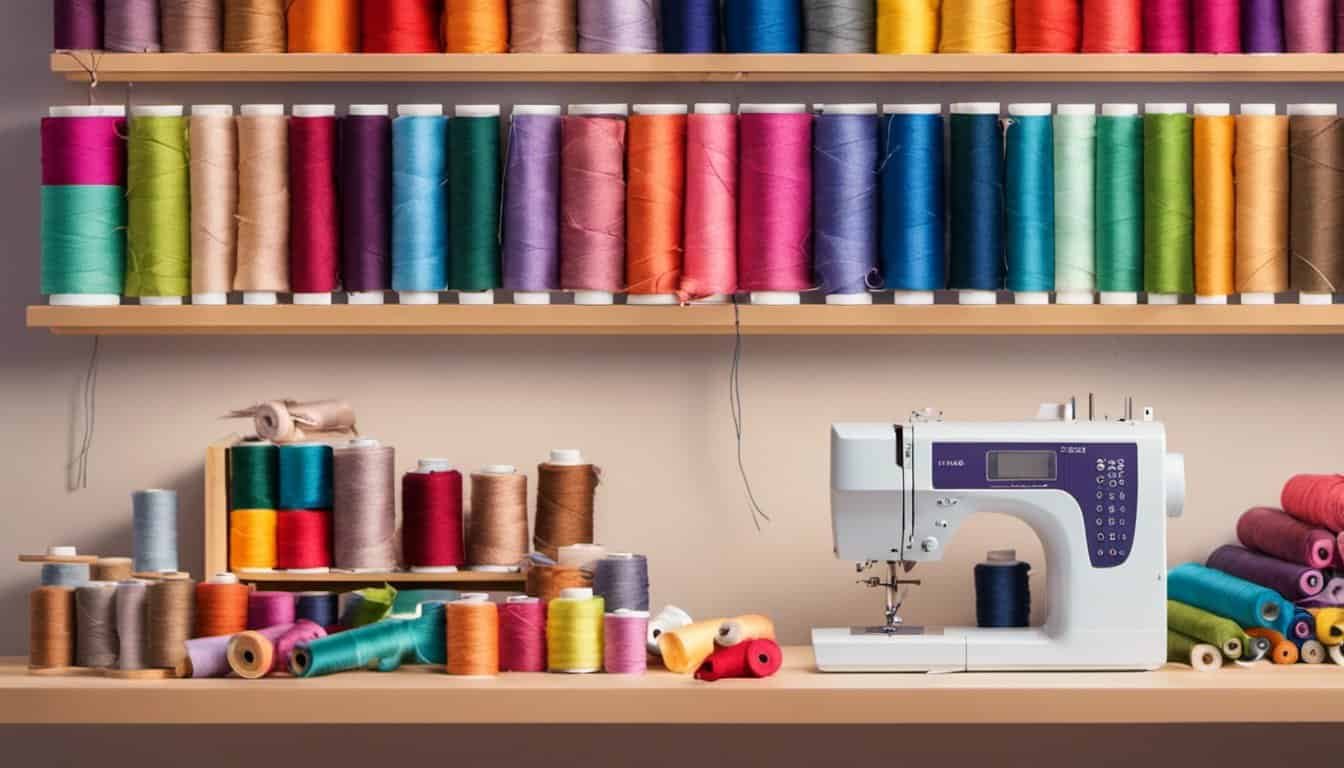
Conclusion
Choosing the right sewing machine can be a game-changer for your projects. By understanding the different types and features, you can find a machine that fits both your skill level and budget. Whether you’re a beginner looking for a basic mechanical model or an advanced sewist needing a computerized powerhouse, there’s a sewing machine out there for you.
Remember to consider what you’ll be using the machine for and how often. Investing in a machine that meets your needs will make your sewing experience more enjoyable and productive. Happy sewing!

